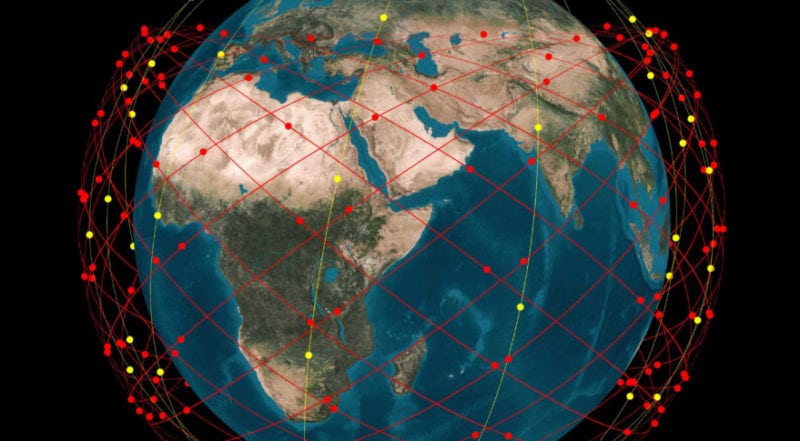Latest News

Telesat’s LEO constellation orbit. Photo: Telesat
Telesat and the Canadian government partnered to help ensure access to affordable, high-speed internet connectivity across rural and remote areas of Canada through the development of Telesat’s LEO Satellite Constellation. The partnership is expected to generate $1.2 billion CAD in revenue for Telesat over 10 years, which includes a contribution of up to $600 million CAD from the Government of Canada, supporting the company’s mission of deploying a transformational communications architecture that delivers affordable, high-speed broadband services across Canada and the rest of the world.
Additionally, the Government of Canada will contribute $85 million CAD to Telesat through the Government’s Strategic Innovation Fund (SIF). Telesat, as part of the agreement, will support approximately 500 jobs in Canada, invest $215 million CAD in Research and Development (R&D) over the next five years, and promote STEM jobs and education in Canada through a newly created scholarship, university partnerships and other initiatives, with a strong focus on creating opportunities for women.
“Telesat LEO is the most ambitious global broadband infrastructure program ever conceived and will revolutionize how Canadians, and everyone else in the world for that matter, experience and leverage the Internet,” said Dan Goldberg, Telesat’s President and CEO. “Today’s announcement will help achieve Canada’s goal of universal connectivity, ensuring that Canadians, regardless of where they work or live, have affordable, high quality, and high-speed Internet. Telesat LEO has garnered substantial interest from commercial enterprises and governments around the world. That interest, together with the funding received from the Strategic Innovation Fund and Canada’s plan to secure Telesat LEO capacity on a long-term basis for Canadians, underpin Telesat’s plan to fully bridge the digital divide with this advanced Telesat LEO Constellation.”
Get the latest Via Satellite news!
Subscribe Now